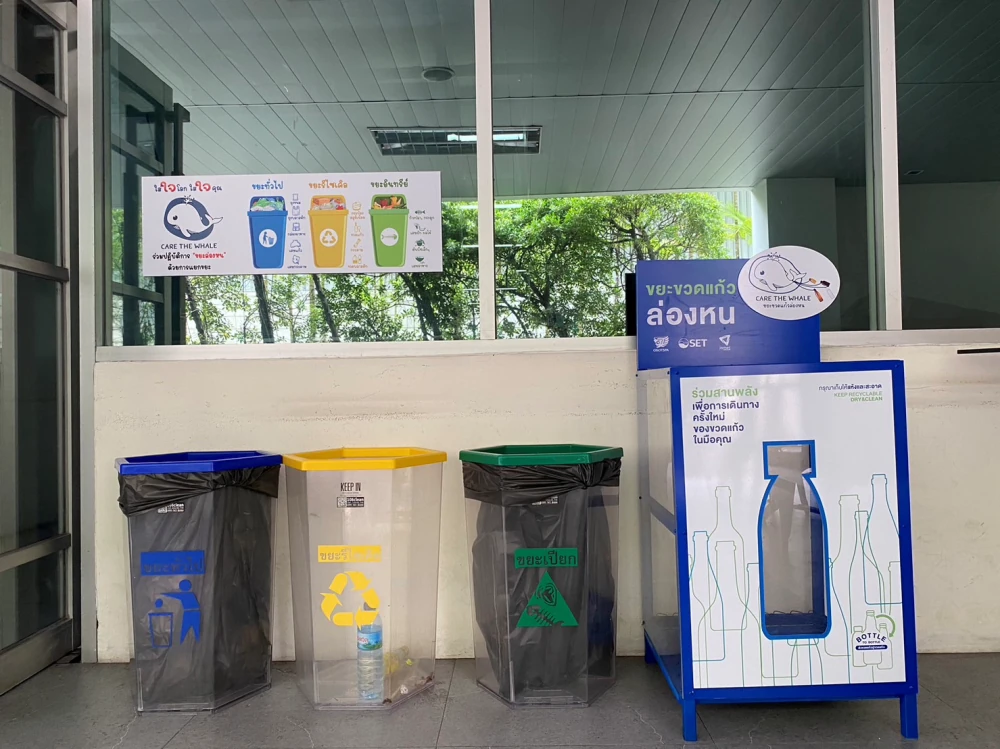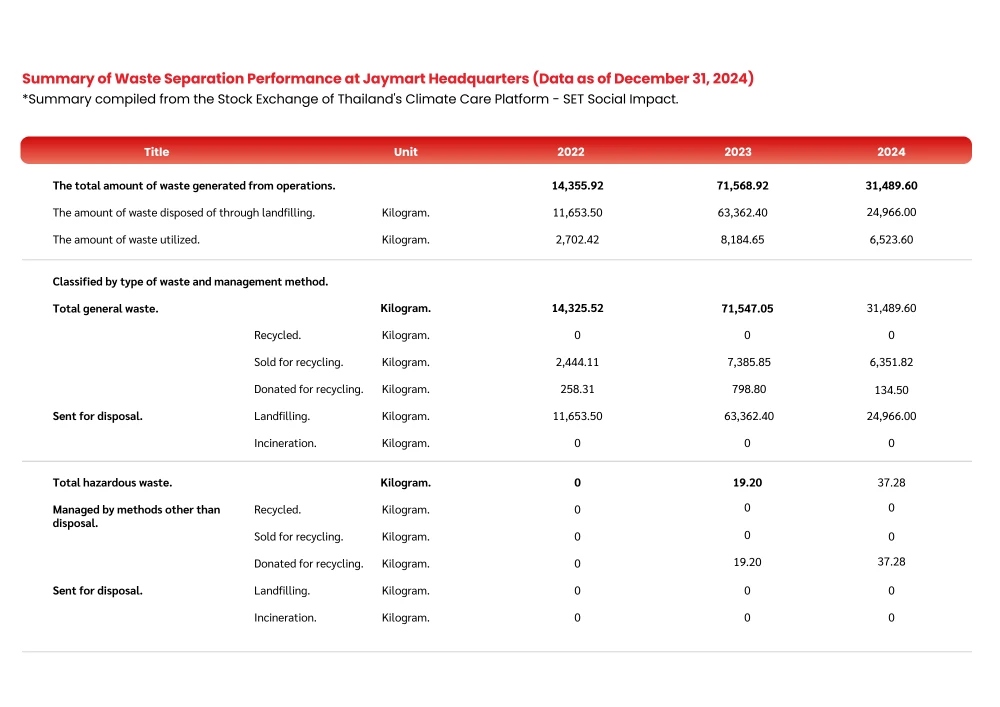Jaymart participates in the "Care the Whale" project with the Stock Exchange of Thailand

The "Care the Whale: Invisible Waste" project is focused on reducing greenhouse gas emissions through effective waste management, using the concept of "Invisible Waste." This initiative aims to eliminate the term "waste" from our daily lives by maximizing the use of resources before items are considered waste. It also applies the principles of Circular Economy to manage waste in a sustainable and correct way, addressing the root cause of waste problems and contributing to the fight against global warming.
Our company has continuously participated in the "Care the Whale: Invisible Waste" project, aiming to tackle environmental issues by managing waste from the initial sorting stage to proper disposal. Additionally, we support efforts to change waste management behaviors within our workforce and the community, ensuring effective waste management practices. This is in line with our collaboration in the Zero-Waste to Landfill initiative, which aims to eliminate the need for waste to be landfilled in the future.
Jaymart has a clear approach to promoting and developing waste management practices within the office. We focus on improving the waste sorting process from the start to ensure that all types of waste are disposed of or recycled in the most appropriate way, following the "Invisible Waste" concept, which strives to minimize waste generation.
An essential measure is raising employee awareness about the importance of waste sorting and encouraging all staff to properly understand how to separate waste. To support this, the company has set up designated waste sorting stations with clearly marked bins throughout the office. This initiative aims to promote and support the shift toward more environmentally friendly waste disposal practices.
Jaymart has set up a total of 13 waste sorting stations across the office buildings (A, B, and C) to meet the needs of all employees. Each station categorizes waste into three types: 1) General waste, which cannot be recycled; 2) Recyclable waste, which can be reused to create new products, such as plastics, paper, and glass; and 3) Organic waste, which can naturally decompose and be used to make compost.
This classification system makes it easier for employees to sort waste correctly from the start, ensuring that waste is processed efficiently and appropriately for recycling or disposal in an environmentally friendly manner.

